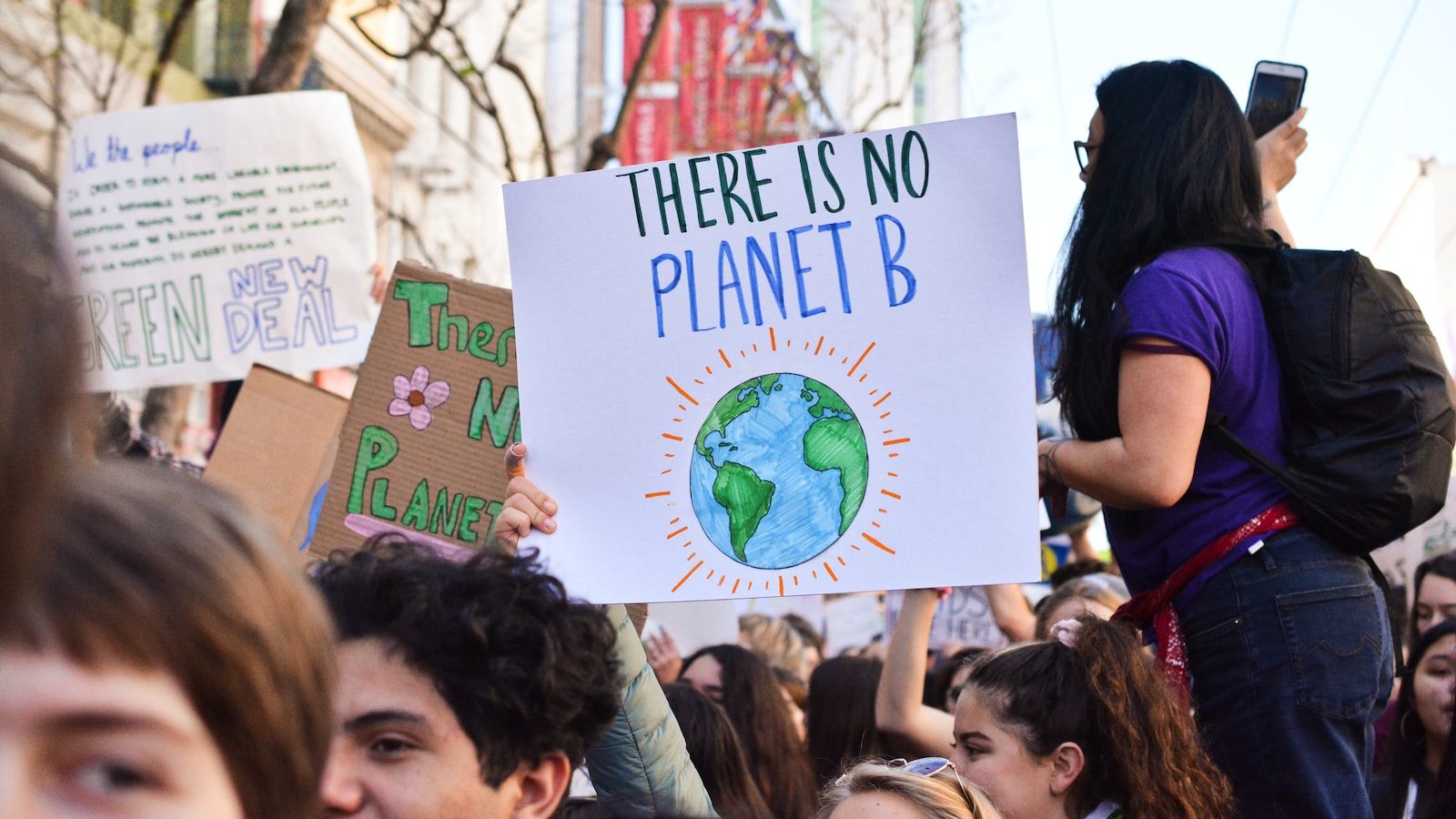Sustainable business practice is an investment in long-term global success
Governments and consumers are pushing organizations to adopt sustainable business practices that restore ecosystems, address waste, and reduce carbon emissions. Coaches can help guide thoughtful transformation in business.
Overconsumption and pollution impact the global ecosystem; coaches can help connect the dots
Half of greenhouse gas emissions are linked to the production of materials, fuels, and food, with demand for these resources growing in line with economic development and population growth. UN Global Goal 12, sustainable consumption and production, aims to eliminate food waste, enhance resource stewardship, and reduce energy pollution. To support this goal, national policies are moving to hold industry accountable for carbon emissions, resource management, and pollution.
Parallel to these industry and policy movements, consumers want ways to drive sustainable change. In a 2021 global survey conducted by marketing and strategy firm Simon, Kucher & Partners, 75% of respondents reported that environmental sustainability is essential, with 71% already moving to make more sustainable purchases. However, barriers to sustainable living include price, availability of “green” options, and lack of confidence in identifying sustainable companies.
Creating a sustainable business model goes beyond offering a token “green product.” Leaders will need to review or revise corporate mission statements, communicate change to internal and external partners, and invest in sustainable leadership development. Coaches can help organizations and executives navigate these changes and evaluate their impact.
Explore how business is changing to address climate change and what this means for coaches:
- Corporate Social Responsibility (CSR)
- Environmental, Social, and Governance (ESG)
- Conscientious consumerism
- Sustainable sourcing and source tracing
- Circular economy
Click here for More Resources for Coaches
1. To avoid “greenwashing,” Corporate Social Responsibility (CSR) must be measurable
The term Corporate Social Responsibility (CSR) was popularized in the 1970s and is based on the idea that wealthy business owners and corporations should give back to employees, consumers, and host communities. CSR has developed to encompass various activities, including corporate political activism, social campaigns, diverse hiring policies, and sustainability pledges. CSR policies vary by country; China requires corporations to consider social responsibility, and South Africa mandates that corporations have a CSR committee. The European Union has the most comprehensive CSR policies, outlining specific measures that allow governments to compare CSR policy outcomes between and within corporations over time. EU CSR policy calls large companies (>500 employees) to consider their impact in the following areas:
- Human rights and local ethics law
- Measuring the impact of investments on the environment
- Protecting and restoring natural habitats and biodiversity
- Reducing waste and transitioning to a circular economy
For voluntary CSR programs, corporations often rely on CSR indices to evaluate their success. However, companies can also use these indices to selectively publish results from sustainable or green programs to hide or minimize negative behaviors in corporate culture and social impact. This strategy, known as “green-washing,” has led some companies to falsify reports in order to appear more sustainable. Beyond the risk of legal trouble, consumer brand perceptions drop when companies are caught “greenwashing.” Coaches who understand the multi-faceted nature of CSR are better prepared to help companies adapt to CSR regulations or develop a voluntary program that avoids greenwashing.
What this means for coaches:
- CSR involves a cultural shift that prioritizes non-financial impact on the same level as financial return. Coaches can help leadership teams identify core values and integrate these values into internal and external activities
- By exploring new perspectives and encouraging creativity in clients, coaches can help identify what resources a client may have to support their social or environmental goals
2. Governments are moving to formalize and require Environmental, Social, and Governance (ESG) outcomes for businesses
Environmental, Social, and Governance (ESG) is a framework that describes how a business impacts social and environmental systems. This framework looks at the entire value chain, including workplace values, investments, product development and manufacturing, and marketing and distribution. As an update to the 2016 CSR policy, a new rule from the European Union requires businesses to disclose Environmental, Social, and Governance (ESG) metrics. The new rule extends to work outside the EU, encompassing multi-national business and production.
Leaders may need help envisioning the impact of climate change on business. A 2019 report from Deloitte interviewed European CFOs to learn about climate action in the EU. The CFOs felt that consumers, board members, and employees were more active in their demand for corporate climate action. Despite this pressure, the report also noted that leaders lacked a systemic or long-term awareness of climate change on business and were focused on short-term environmental strategies. A well-developed ESG strategy captures the risks of unchecked climate change on business and then works to mitigate and reverse these risks through company actions.
What this means for coaches:
- Coaches can help clients develop systems-thinking perspectives that connect sustainable business practices to global trends
- For clients unfamiliar with ESG, the idea of new reporting measures can be overwhelming. Coaches can help clients identify if any existing products, work functions, or reporting areas already align with ESG measurements, and then create a plan to adjust where needed
- Leaders and Human Resources departments may benefit from a coaching program tailored to develop future sustainability leaders
3. The rise of conscientious consumerism is already shaping business around consumer values
Consumers are choosing products that align with their social, political, and environmental values. The growing trend towards “conscientious consumerism” is transforming shopper expectations. In a global survey, 73% of respondents said they would change their consumption habits to reduce environmental impact. Shoppers are also avoiding companies they perceive as guilty of “greenwashing” or exaggerating the effect of their sustainability programs. The rise of conscientious consumerism means that companies will need to go beyond official statements and sustainable product lines to ensure that sustainability is at the heart of business operations and product lifecycles.
At the forefront of this trend, Gen Z shoppers are demanding more from corporations. A survey of US Gen-Z found that two-thirds were willing to pay more for sustainable products and were more likely to choose products based on sustainability over brand affiliation. Sustainable search engines and grassroots social media education make it easy for youth to identify sustainable companies or boycott harmful products quickly. As Gen-Zs enter the workforce, they are also driving corporate change from within by choosing to work for ethical companies and advocating for 401K or other retirement accounts to align with ESG principles.
What this means for coaches:
- For clients looking to live a more sustainable life, coaches can help explore how resources like sustainable search engines and mindful purchasing habits might support their goals
- Leadership, human resources, and marketing teams all potentially benefit from a coach who can help facilitate discussions about how diverse values shape employee and consumer needs
- As corporate clients develop sustainability goals, coaches can ask clients to consider how Gen Z’s interest in sustainability might impact talent acquisition, training, and retention in the next ten years
4. Sustainable sourcing and source tracing provide greater accountability in a globally connected economy
Technology has made it easier to identify, track, and fact-check a product’s origin. With changing regulations and growing consumer demand for ethical goods, companies can no longer risk sourcing raw materials or products in unjust ways or ways that harm local environments. Founded by the Sustainable Apparel Coalition, the Higgs Index provides information on materials, products, factories, working conditions, stores, and even carbon emissions related to the fashion industry. In agriculture, SourceTrace and TraceX offer industry-level solutions for food and materials tracing. A report by Accenture details the challenges and unique solutions source tracing offers for businesses and conscientious consumers. They suggest that organizations can build consumer trust by tracking, maintaining, and making public, information about how products are sourced and brought to market.
What this means for coaches:
- Coaches can support corporate clients to think critically about how sustainable business practices align with shifting consumer and policy demands, and can contribute to business longevity
- Corporate clients will need the skills to visualize the interconnected systems and partnerships defining their business. To avoid “greenwashing,” sustainability goals and ethics should be consistent across internal and external partnerships.
5. Circular economy reimagines the product lifecycle and reduces waste
Circular economy is a model of production and consumption that includes sharing, reusing, repairing, repurposing, and recycling materials for as long as possible. As one of the sustainable business practices outlined in the EU ESG guidelines, creating a circular economy requires companies to reimagine product lifecycles and identify new opportunities for products or their components after their initial use. Innovations include converting food waste into biodegradable plastics or carbon capture programs that mix carbon in building materials like concrete. The Ellen MacArthur Foundation offers educational resources to explore how different industries repurpose and reuse resources.
At the core of circular economy is reducing overuse of raw natural materials and choosing low-impact solutions before resorting to resource-intensive methods such as recycling. For example, consumer initiatives to upcycle or reuse containers and other waste materials reduce the amount of garbage that ends up in landfills. Other solutions like the IKEA Buy-Back and Patagonia Worn Wear programs let consumers trade in used products for store credit. The used products are then sold at discounted prices and avoid adding to the growing bulk of surplus furniture and clothing in landfills.
What this means for coaches:
- Coaches can guide clients to explore their product lifecycles with a learner’s mindset to identify how these products and their packaging might take on a second use
- Multi-cultural companies may work under different laws or values around waste-management. Coaches can help these clients communicate clear and measurable goals around waste management, minimization, and reuse
Coaches are reevaluating their priorities and promoting sustainable business practices through their coaching relationships
Coaches who want to integrate environmental and climate awareness into their practice can build off the growing prominence of sustainability regulation and programming in business.
Coaches can take the following steps to integrate climate awareness into their practice:
- Identify your “why.” Understand what drives your desire to integrate eco-consciousness into your practice
- Get connected to a community of eco-conscious coaches
- Explore what resources and frameworks exist to help start conversations about the climate and sustainability with clients
Resources for Coaches:
- The Climate Coaching Alliance and the Joint Global Statement Group on Climate and Ecodiversity Crises are coaching collaborations that host educational events and provide networking opportunities for coaches to engage with eco-conscious peers.
- Books like Systemic Coaching and Ecological and Climate-Conscious Coaching explore how coaches can introduce climate topics in their practice. Both resources provide examples, reflection activities, and frameworks to further personal understanding.
- To hear examples from coaches and thought leaders in sustainability, coaches may also benefit from the podcast series, “Coaching in the Climate Crisis,” hosted by the Association for Coaching.




